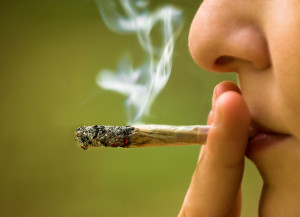Introduction
It is impossible to find a single definition for drug addiction as different drugs have different effects, which includes the risk of dependence. There are some aspects that are found in the definition of drug dependence, namely tolerance to the drug, followed by physical dependence. Tolerance means that there is a progressive need to increase the dose, when in the past the same effect of the drug was noticed with smaller doses.
Physical dependence manifests itself in withdrawal symptoms. Another feature is psychological dependence. It means that the use translates into feelings of satisfaction and a desire to repeat the experience. There is a feeling of discontent and intense craving if the drug is withheld. Addiction is characterized by a lifestyle where drug use has become compulsive and the involvement with it overwhelming. Even though the addicted patient is aware of dangers and risks, he or she will continue. Due to the destructive pattern of use it is necessary to stop drug use, whether the addict agrees and understands or not.
Drug Abuse
Drug abuse is multifaceted and it may involve experimenting with recreational drug use, which is usually illegal and brings the patient into conflict with the law. There is also the abuse of prescription drugs. They may have been useful first to prevent problems or symptoms, but through continued use the patient may become dependent and continues the use to avoid the discomfort of withdrawal. Abuse of illegal as well as prescription drugs occurs in all socioeconomic classes. The most destructive use of psychoactive drugs is still seen in connection with poverty. Here the person involved may hope to find a way out of deprivation by selling drugs and profiting from it, but instead gets more addicted and poor.
Recreational Drugs and their use have been on the rise in Western culture. Most of them are psycho stimulant or hallucinogenic in nature and they are used to get “high” or experience a state of altered consciousness rather than to relieve psychologic distress. Crude opium (hash), marijuana, hallucinogenic mushrooms (shrooms) and alcohol are part of a group that is close to plant origin. But being close to “natural” does not imply that these substances are harmless and without risk.
References:
1. Marx: Rosen’s Emergency Medicine: Concepts and Clinical Practice, 5th ed., Copyright © 2002 Mosby, Inc. , p. 185:”Abdominal pain”.
2. Ferri: Ferri’s Clinical Advisor: Instant Diagnosis and Treatment, 2004 ed., Copyright © 2004 Mosby, Inc.
3. Rakel: Conn’s Current Therapy 2004, 56th ed., Copyright © 2004 Elsevier







